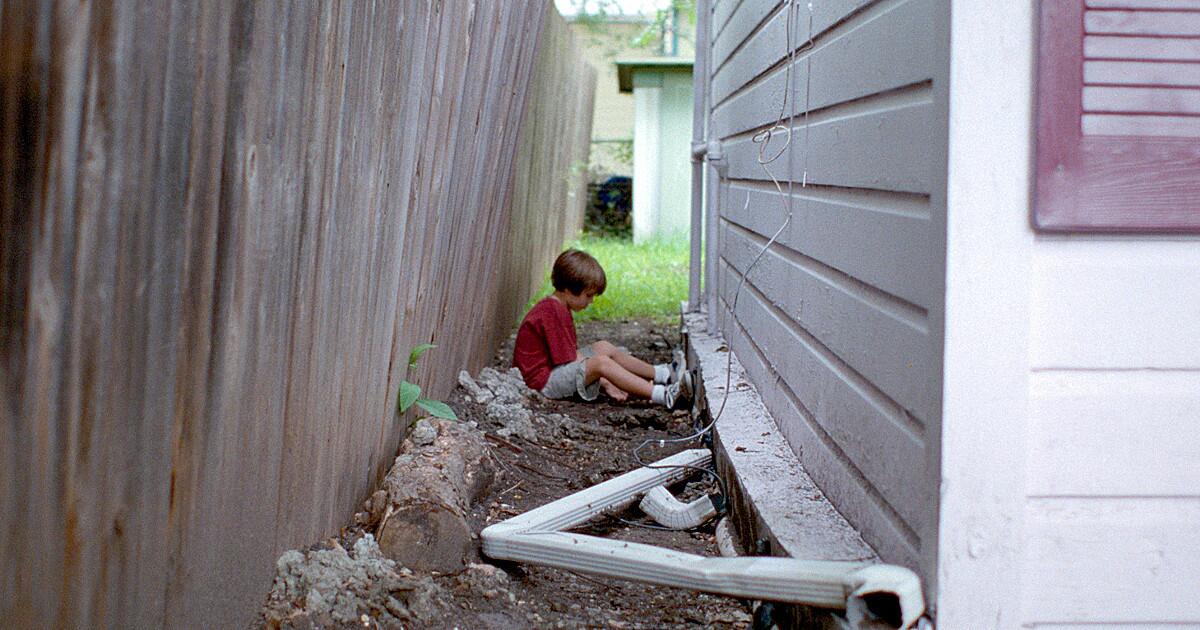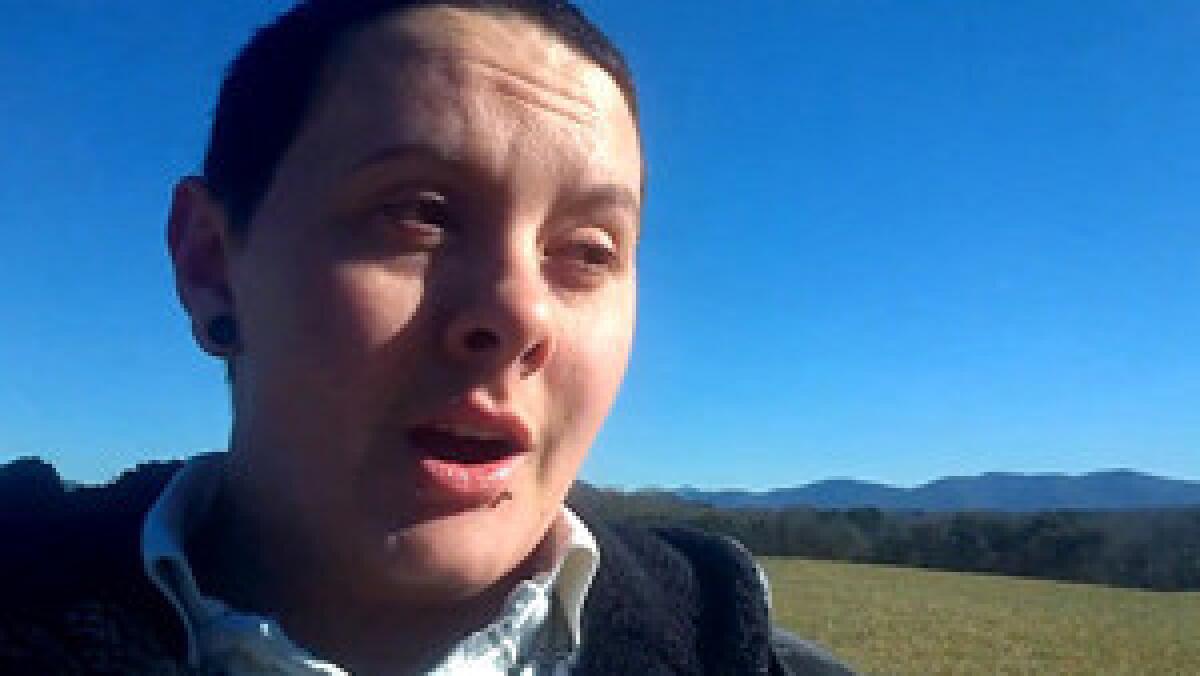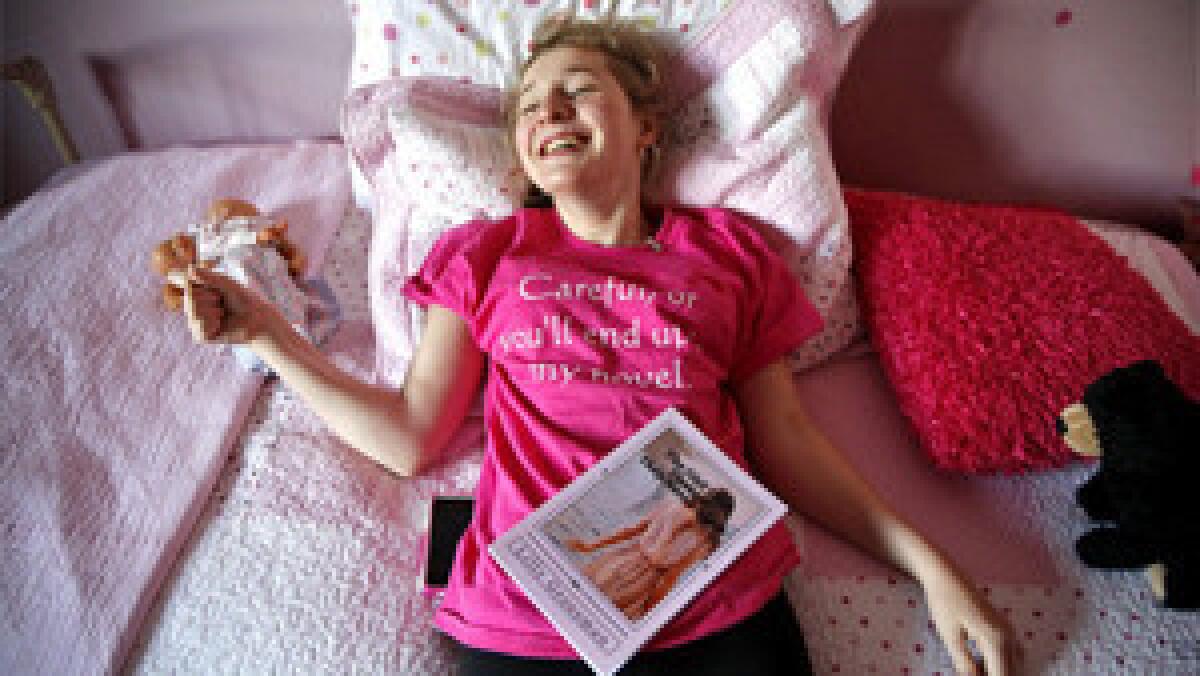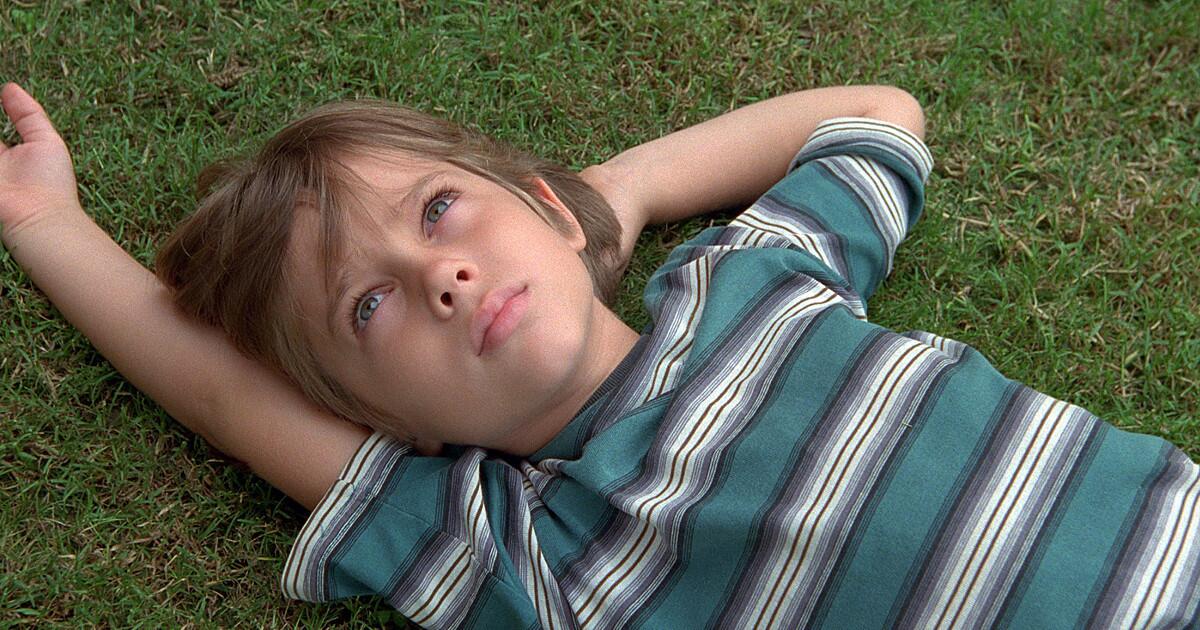He sees flashes of his ‘Boyhood’ screen at Sundance to rave reviews
Ellar Coltrane, 19, began his starring role in Richard Linklater’s ‘Boyhood’ at age 7, filming a little each year with Ethan Hawke and Patricia Arquette and growing with his character.
- Share via
PARK CITY, Utah — When Ellar Coltrane was growing up in Texas, his friends would razz him about a movie he claimed to be shooting with the director Richard Linklater. Over the years, they would ask Coltrane if it was ever coming out, and why he was always disappearing to allegedly "make a film" with the man behind "Before Midnight" and "Slacker."
"Some people had a hard time grasping what was going on," the 19-year-old said.
No wonder: Since he was 7, Coltrane has been involved in an audacious — and patient — feat of filmmaking.
Every year, Linklater and a film crew would whisk him away from his Austin home to another set of Texas locations and ask him what was happening in his life. Then they would put him together with a fake family that included Ethan Hawke, Patricia Arquette and the director's daughter, Lorelei Linklater. Finally, they would shoot scenes from both a script Linklater had written and the boy's own year, merging it into a character called Mason.
They did this for nearly a week every year until last year, when Coltrane turned 18.
Child actors are a dime a dozen in Hollywood. But none have had, and perhaps none will ever have, the experience of Coltrane. He is the boy at the center of "Boyhood," Linklater's ambitious 12-year project to follow a child growing up in real time, in what might be called a sprawling epic of the intimate.
The movie is scripted, but its story was adjusted over time as Coltrane changed. Linklater then blended it all into a single three-hour narrative film, which premiered this week to rave reviews at the Sundance Film Festival and will be released in theaters later this year.
The festival screening ended at nearly 1 in the morning, followed by some spirited celebration at a local resort. The next day, Coltrane was running the gantlet of photo studios, mike-in-face questions and the general frenzy of Sundance.

Ethan Hawke, left, Ellar Coltrane, Patricia Arquette and Richard Linklater reunited at the Sundance Film Festival for the premiere of "Boyhood," which they filmed over a 12-year period. (Jay L. Clendenin / Los Angeles Times)
"It's very strange. I've been on the set side of things, but not really on this one," Coltrane said of the star-making machinery. "I felt a little like an alien from another planet."
**
Linklater knew he wanted to capture the transition from youth to adulthood. But he was initially unsure of how to go about it.
"I wanted to do something about childhood. But I couldn't find one moment I had enough to say about," Linklater said. Then he had a thought: "Why couldn't you just film a little bit each year and encompass all of it?"
Although the movie was essentially made as a series of snapshots, it plays as it would in real life. Basically, audiences are watching the aging process naturally, not with the makeup, swapped-out actors and other Hollywood fabrications.
In spanning such a long period, the film also takes a look at the changing culture. Music evolves over the course of the film — from Coldplay's "Yellow" at the start to Daft Punk's "Get Lucky" at its end. The war in Iraq gives way to President Obama's election. Mason's Game Boy subtly evolves into a Wii and then into an iPhone.
Linklater has long been interested in the larger theme of the effect of time's passage on the human psyche; after all, his "Before" series (it also includes 1995's "Before Sunrise" and 2004's "Before Sunset") has explored a fictional couple over an 18-year period, checking in on them to see how they, and we, had changed.
In "Boyhood" he did something similar, though by examining childhood, marriage and intergenerational dynamics, it's an even broader exploration of how the years can both sharpen and warp our thinking.
"The real character in the movie," he said, "is time."
**
"Boyhood" is a portrait of someone becoming who he is, underlining, gently, what made him that way. Hawke has described the film as a kind of "human time-lapse photography."
Coltrane is the film's eyes and its narrative center; the movie follows him as he moves from the blissful ignorance of first grade (rock collecting is a passion) to the hard-bitten swagger of his early teenage years to, finally, a more mature state as he prepares to depart for college, when photography and girls have long since entered the picture.
Psychology researchers in the future may have a field day with Coltrane's case. For the boy, it might be considered a kind of benign — and, its principals say, rewarding — version of "The Truman Show," in which a person's life was shaped by those peering at it.
"Who I am influenced the character, and who the character was influenced me," said Coltrane, who grew up Ellar Salmon but has recently begun using Coltrane, his middle name. An interest in photography, for instance, was nurtured by Linklater; once Coltrane got into it in real life, it then became a part of the film.
Unlike Mason, though, Coltrane was home-schooled until the ninth grade, attended a few years of high school and eventually received his GED. As the years went by, the magnitude of the 12-year project began to hit him.
"At 7, 12 years is more than twice my life, so it's really hard to imagine," he said. "Around 12 or 13, it began to gradually dawn on me what was actually happening."
**
No matter how close I get to people, no one really understands what it's like to grow up like this.”— Ellar Coltrane
Linklater plucked the boy from a long roster of applicants — he was, the director said, "kind of ethereal, and I like the way his mind worked." With long sandy hair and wide eyes, his face had a kind of inquisitiveness.
Today, Coltrane has a thoughtful way about him. (Linklater's instinct proved correct.) He speaks with a mixture of deliberateness that can sound both deep and surfer-y. He is working part time as a landscaper for his uncle's company while pursuing painting and music and hoping, he says, that this role opens up some acting doors.
Some might wonder if the young man's childhood conditions were entirely healthful. Coltrane acknowledges that they were pretty unusual.
"It's something I've been thinking about a lot — no matter how close I get to people, no one really understands what it's like to grow up like this," he said. "I've been trying to wrap my head around it."
Hawke said he believes it was a beneficial experience.
Coltrane "didn't have to deal with any of the damaging aspects," said Hawke, a former child actor himself. "Acting can be a really healing and enriching thing in your life, but for a kid it can make you wildly self-conscious."
Coltrane, Hawke said, "didn't have to deal with any of the public aspects."

Ellar Coltraine in a scene from the movie "Boyhood." (Sundance Film Festival)
That said, the film was hardly easy to shoot. Actors could have changed in ways that took the story on wild turns, or perhaps decided midway through they didn't want to make the film. Planning a movie 12 years out is an enterprise filled with uncertainty.
Not least of the issues was keeping the financiers happy. Nearly every year, Jonathan Sehring, an executive at financier IFC Films, found himself answering to bosses who wondered just what exactly this line on the balance sheet was that never seemed to produce any release-worthy material. (That the company is still around and still run by the same executive is nothing short of an accomplishment in its own right.)
"People could go crazy making this movie," Arquette said. "Most people would go crazy."
Linklater said it came with the territory — sort of. "If you don't have patience, don't get into film," he said. "It's not a quick gratification artistic medium. This is just the biggest exponent of that you can think of."
In fact, about three years into the filming, Lorelei Linklater, then 11, went to her father with an impatient request — she asked if her character could be killed off. (She later came to enjoy it as a teenager, her father said.)
When the crew was finished shooting, there was an air of melancholy; in a sense, it wasn't just a shoot whose door was being closed, but childhood itself.
Of course, given the director's penchant for returning to a story, will he follow Mason's tale again?
"Maybe," Linklater said wryly, "we'll pick him up as a young parent."
Follow Steven Zeitchik(@ZeitchikLAT) on Twitter
Follow @latgreatreads on Twitter
More great reads
YouTube is a lifeline for transgender teens, young adults

If there was no Internet, I probably wouldn't be where I'm at right now.”
Teen's new media empire has fashion world on alert

The goal has become to make people feel...they're cool enough or smart enough.”
Family hopes genome test will help cure girl's mystery disease

The biggest entertainment stories
Get our big stories about Hollywood, film, television, music, arts, culture and more right in your inbox as soon as they publish.
You may occasionally receive promotional content from the Los Angeles Times.









